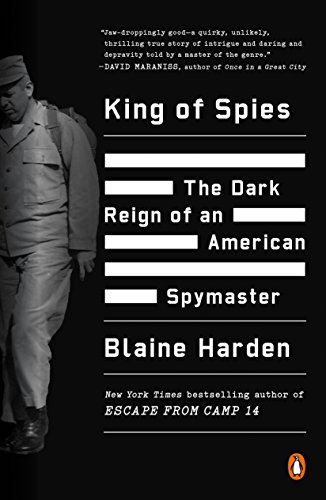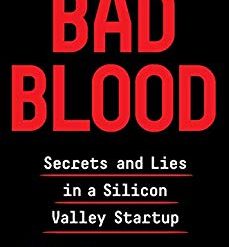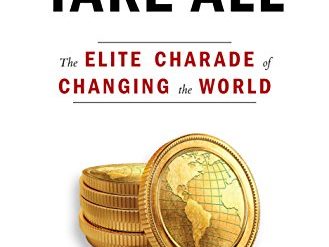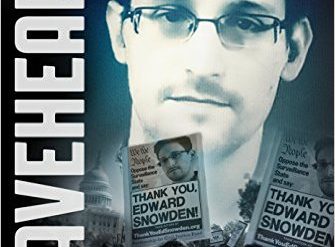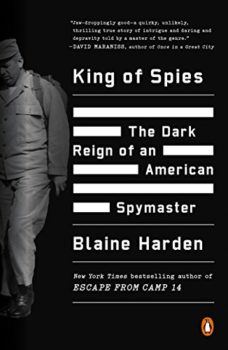
We know very little about America’s role in the Korean War. History books relate how Kim Il-Sung’s North Korean army invaded the South. They tell us that the invasion succeeded in driving US and South Korean troops down the length of the peninsula. Then, we learn, General Douglas MacArthur saved the day. The histories describe how MacArthur’s forces quickly drove north to the Korean border with China.
Estimated reading time: 7 minutes
MacArthur publicly advocated crossing the Yalu River, using nuclear weapons on Chinese and North Korean troops. President Truman famously fired MacArthur, but the damage had been done. Three hundred thousand Chinese troops flooded across the border, overwhelming American forces and driving them back to the 38th Parallel that separated North from South. An armistice followed soon after, freezing the status quo. That’s about the extent of what most of us Americans are taught about the Korean War.
America’s shameful role in the Korean War
There’s nothing amiss in the skeletal account above. But it neatly covers up America’s shameful role in the Korean War. Award-winning journalist Blaine Harden brings much more of the story to light in King of Spies, his account of the improbable American spymaster who helped the US survive the war. Yes, I use the word “survive” rather than “win,” because even today, more than six decades later, there is no peace treaty between the North and South. And, President Donald Trump notwithstanding, we are still living with the grim consequences of that bloody war.
Following are some of the most serious aspects of the truth about America’s role in the Korean War.
King of Spies: The Dark Reign of an American Spymaster by Blaine Harden (2018) 269 pages ★★★★★
South Korea was a sitting duck
The Truman Administration brought home nearly all American troops from South Korea despite clear evidence of the danger in doing so. “Truman and his advisers did not see the invasion as a consequence of decisions that they had made about the Korean Peninsula,” Harden writes. “They had defined it as strategically unimportant and had withdrawn the army from South Korea. By leaving behind no armor, no artillery, and no modern military aircraft, they had made South Korea a sitting duck.”
MacArthur rejected warnings that an invasion was imminent
Months in advance, US intelligence agents with good sources in Korea warned General MacArthur that an invasion was imminent. MacArthur and his intelligence chief refused to believe the reports and insisted to the Pentagon and the White House that the few reports that had gotten past them were not to be believed. And even several days after North Korean troops crossed the 38th Parallel, they insisted that the invasion was merely a probe and not to be taken seriously.
American troops witnessed South Korea’s wholesale slaughter of its citizens
The man the US installed as South Korea’s first president was a murderer thousands of times over. “The government of Syngman Rhee used the invasion as an excuse to slaughter—in just a few weeks—tens of thousands of South Korean civilians including women and children, who it suspected were Communists or who happened to be in jail when war broke out.” And American troops silently witnessed the slaughter.
The US Air Force almost literally bombed North Korea into the Stone Age
American and British bombers famously turned many of Germany’s cities into ash in World War II. What the US Air Force did in the Korean War was worse. Using immense quantities of explosives and napalm, they destroyed every one of North Korea’s cities in 1950-52. The U.S. dropped a total of 635,000 tons of bombs, including 32,557 tons of napalm, on Korea, more than during the whole Pacific campaign of World War II. When North Korea’s dictators whip up their people into a frenzy over the behavior of the Americans, that’s not paranoia. And it’s no mystery why most of the people of that poverty-stricken land express such profound hatred of Americans. They’re simply responding to their history.
The American military didn’t win the war
“In the end, American bombs did not stop the war; Stalin did, by dying,” Harden asserts. “After the dictator’s death on March 5, 1953, no one who mattered in the Soviet Union wanted to prolong the expensive bloodshed in Korea. Within days, the Soviet leadership moved to work with the Chinese and seek ‘the soonest possible conclusion’ to the war. Peace talks with the Americans suddenly turned serious.” Clearly, the US military had never learned the lesson about strategic bombing in World War II: it doesn’t work. And the American government compounded the error once again in Vietnam more than a decade later.
A disturbing story of an unlikely spymaster
Of course, King of Spies isn’t a history of the Korean War. As the subtitle makes clear, it’s the disturbing story of one of the most unlikely spymasters in American history. His name was Donald Nichols. At the age of 19, Nichols was a master sergeant in the US Army who was a seventh-grade dropout from a dirt-poor and abusive family. He was working in the motor pool on a base when World War II ended. Instead of returning home to the States, he enrolled in a training program for the Army’s Counter Intelligence Corps. Soon, he was in Korea.
“He became a spymaster with his own base, his own secret army, and his own rules,” Harden notes. And Nichols became virtually untouchable by his superiors when he stumbled into a close friendship with the President of South Korea, Syngman Rhee. Unaccountably, Rhee, who possessed a PhD from Princeton, regarded him as a son, and Nichols called him “father.” The two couldn’t possibly have been more ill-matched. Yet through Rhee Nichols thus gained access to information that was uniquely useful to his superiors. And that information played a large role in helping the allies prevail on the battlefield.
Eventually, “he supervised up to fifty-eight American intelligence officers and airmen, two hundred South Korean intelligence officers, and more than seven hundred agents, most of them defectors and refugees from North Korea.” He was brave to the point of foolhardiness and was decorated numerous times both by the US and South Korea. Nichols became so powerful that even a major general who tried to have him sent home was unable to do so.
The truth about Nichols’ conduct was a long time coming
Nichols eleven-year career in espionage for the US military only came to an end in 1957, four years after the armistice was signed. In the years that followed, the truth about his conduct came to light. He took home hundreds of thousands of dollars in cash from currency manipulation and the black market. He pressed young Korean soldiers into performing sexual favors for him. Hundreds of his Korean agents lost their lives on suicide missions, or in some cases at Nichol’s hands personally. (He pushed an unknown number of Koreans to their death from airplanes and helicopters.) He may also have sold “U.S. military equipment for large amounts of money.” And he was among those American soldiers who witnessed mass murder engineered by Syngman Rhee.
Unsurprisingly, Nichols found it difficult to adjust to life back home. He was already obese, but his weight ballooned to 320 pounds. Following his arrest on charges of pedophilia, he was committed to psychiatric care. There, he was treated with massive doses of Thorazine and fifty rounds of unusually brutal electroshock therapy. Nichols died years later, in 1992. Only a handful of people attended his funeral.
About the author
Among Blaine Harden‘s many journalistic credentials are his 28-year career as a foreign correspondent with the Washington Post, four years with the New York Times, and as a contributor and consultant to PBS Frontline. He has written five books, the last three of which probe the history of North Korea.
For related reading
Previously I’ve reviewed two other excellent books by Blaine Harden:
- Escape from Camp 14: One Man’s Remarkable Odyssey from North Korea to Freedom in the West by Blaine Harden (A survivor’s eye-opening tale of life in the North Korean gulag) and
- The Great Leader and the Fighter Pilot: The True Story of the Tyrant Who Created North Korea and the Young Lieutenant Who Stole His Way to Freedom by Blaine Harden (How North Korea came to be what it is today).
You might also enjoy my posts:
- Good nonfiction books about espionage
- Good books about North Korea
- Great biographies I’ve reviewed: my 10 favorites
And you can always find my most popular reviews, and the most recent ones, on the Home Page.

